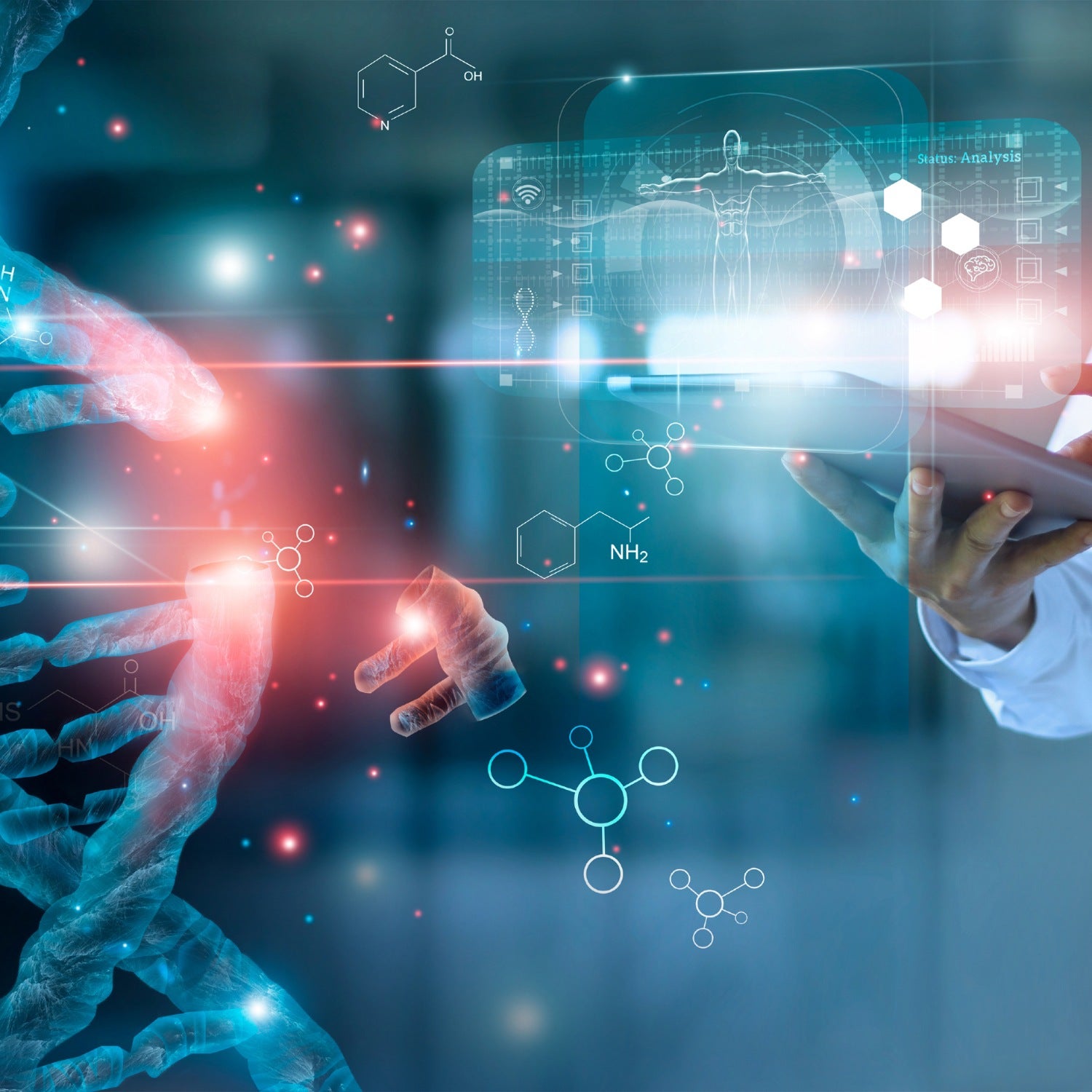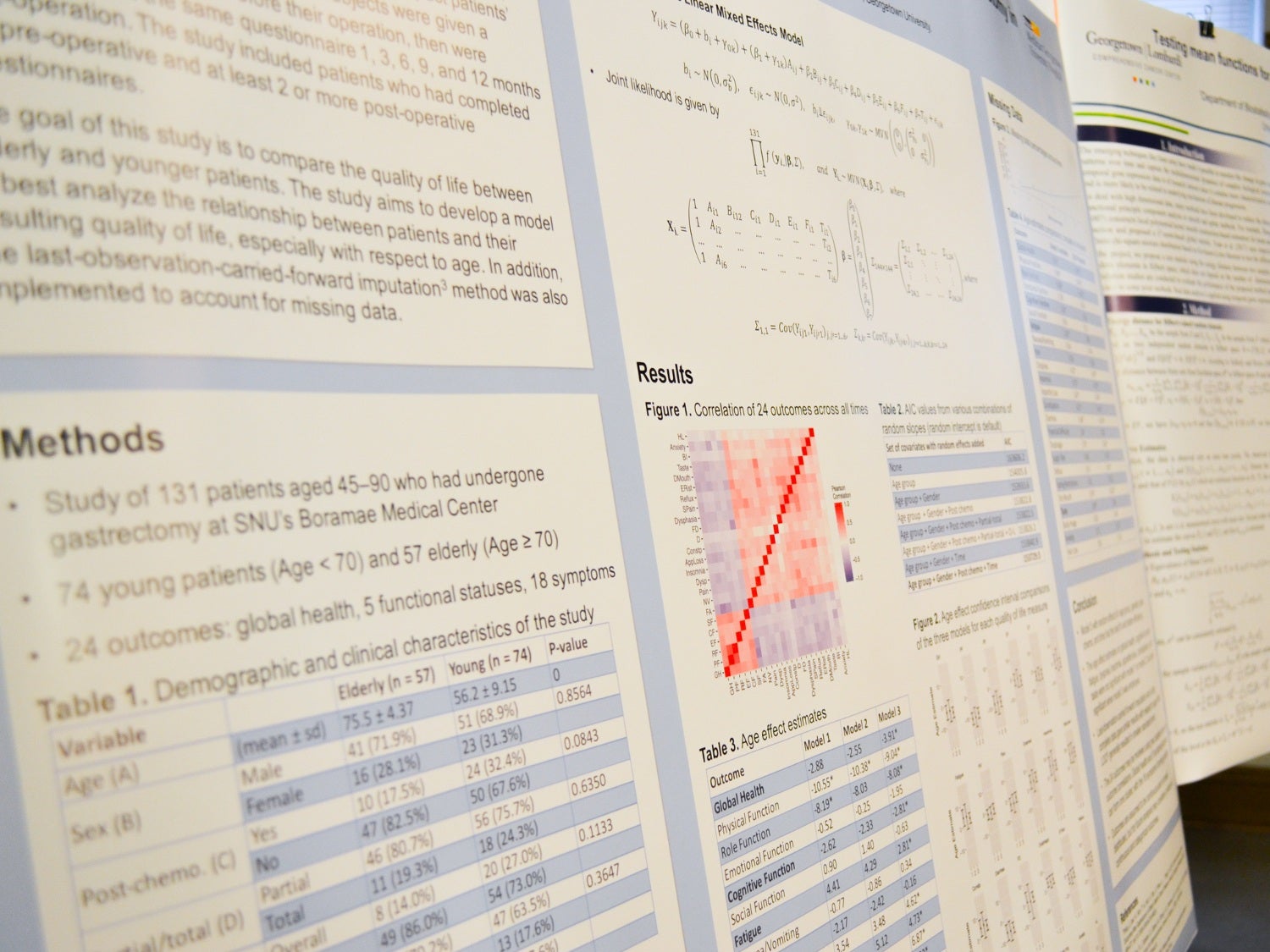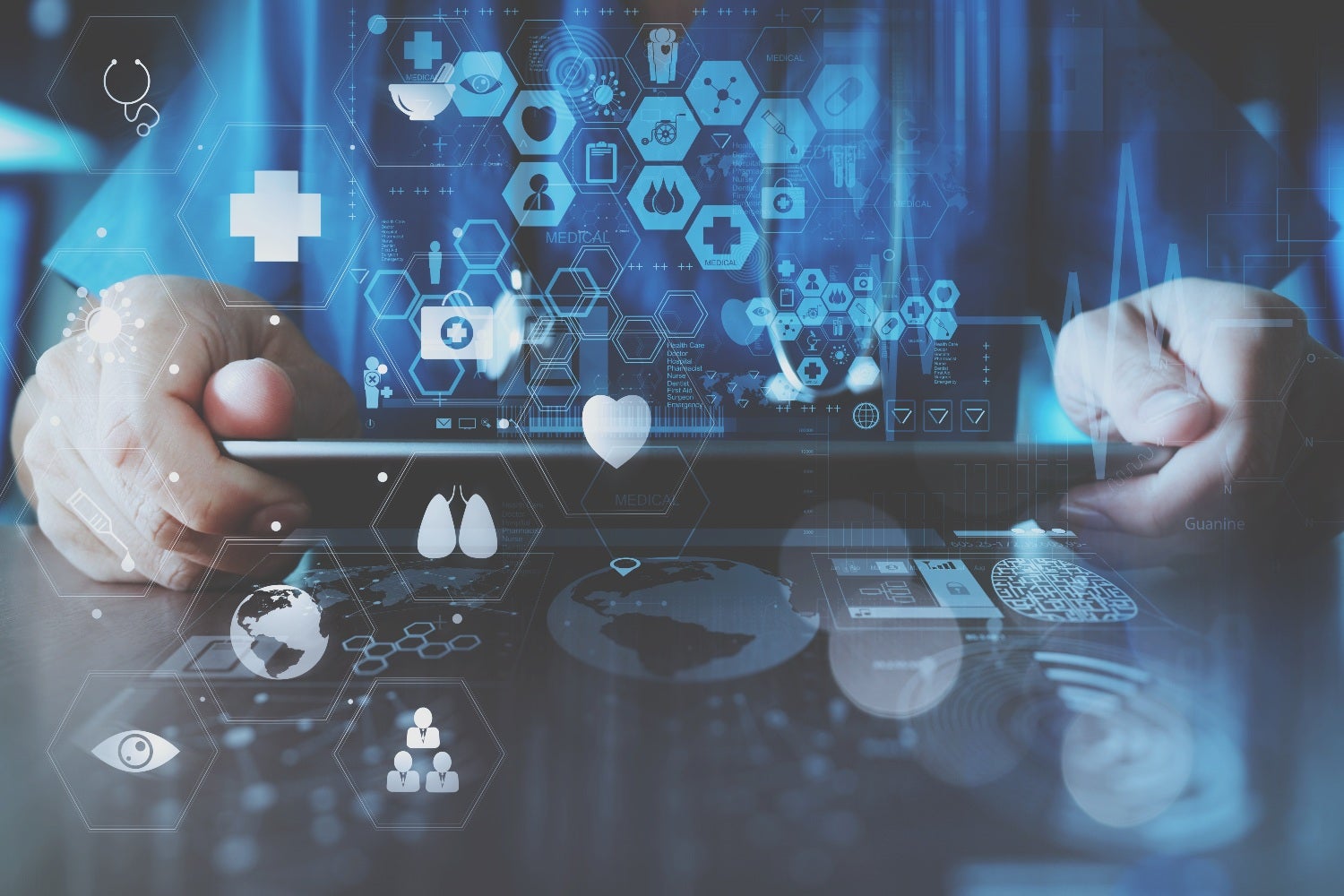Bioinformaticians unlock the potential of electronic medical records, genomic data and more, making discoveries that advance biomedical knowledge and public health. This program equips students with a strong practical and theoretical foundation for conducting academic and commercial biomedical research. The program has minimal prerequisites, allowing students from many scientific backgrounds to learn together. Students perform an internship at Georgetown University or elsewhere in the United States, including at the National Institutes of Health, National Laboratories or commercial organizations.
Learn MoreBringing the future of medicine into focus
From a patient’s medical history to population trends, data sets have the potential to revolutionize medical care. Our programs teach you the latest techniques and plug you into industry or academic research so you can start making an impact.
Biomedical Graduate Education offers three data science master’s programs: the M.S. in Bioinformatics, the M.S. in Biostatistics, and the M.S. in Health Informatics & Data Science.
Programs at a Glance
| Degree | Program Prerequisites | Careers |
|---|---|---|
| M.S. in Bioinformatics | • Bachelor’s degree • Students will learn Python and molecular biology relevant to bioinformatics in the first semester and R in the second semester | • Bioinformatician in academic, pharmaceutical and genetics-based industries, government laboratories (e.g., NIH, FDA, CDC), 23andMe • Ph.D. in Bioinformatics • M.D. or M.D./Ph.D. specializing in genetic disease, personalized medicine or genetic counseling |
| M.S. in Biostatistics | • Bachelor’s degree • Basic courses in Statistics, Multivariable Calculus and Linear Algebra • Students will learn SAS and R in the first semester of the program | • Biostatistician or biometrician • Ph.D. studies • Medical research • Government statistics • Contract research organizations • Pharmaceutical companies |
| M.S. in Health Informatics & Data Science | • Bachelor’s degree in Computer Science, Physics, Mathematics, Biology, Medicine or related fields • Experience or practical knowledge of Python, R and SQL | • Health data scientist • Health business analyst • Health technology consultant • Electronic Health Record data manager • Nurse informatician • Digital health analyst • Precision health data analyst • Medical imaging informatician • Ph.D. in biomedical informatics |
M.S. in Bioinformatics
Core Topics
- Bioinformatics computing (Python)
- Molecular biology
- Systems biology and bioinformatics
- Online resources such as biological knowledge portals and experimental data repositories
- Electives include machine learning, analysis of sequencing data, biostatistics, and biomedical informatics

M.S. in Biostatistics
Students in this program receive integrated training comprising computational, quantitative and analytical approaches to data analysis in health sciences. They may choose to focus on cancer biostatistics, bioinformatics, epidemiology, or data science in biomedical research. A research practicum takes students through the process of statistical research, from planning and literature review to model building to interpretation of results. Many graduates pursue academic roles and Ph.D. studies, as well as health research positions in government and industry.
Learn MoreCore Topics
- Probability and sampling
- Statistics and data analysis
- Statistical software
- Machine learning for bioinformatics
- Data science
- Experimental design
- Principles of epidemiology
- Survival analysis
- Linear models and multivariate analysis
- Categorical data analysis
- Research practicum

M.S. in Health Informatics & Data Science
This program provides expertise in translating data into insights and improved care outcomes, from the patient to the population level. The curriculum is especially well suited to students with a science, computer science, engineering, mathematics, or health professional background who are seeking to become a practicing clinical informatician or health data scientist. A mentored capstone project with a government or industry affiliate provides real-world experience and a potential career path.
Learn MoreCore Topics
- Massive health data analytics in cloud environments
- Precision health informatics
- Using Electronic Health Record data
- Evidence-based data analysis in population health
- Digital health applications for mobile devices
- Artificial intelligence and machine learning for health applications
- Medical imaging informatics
- Capstone internship project
Apply Now
Ready to start your application? Create an applicant account in our online portal.




